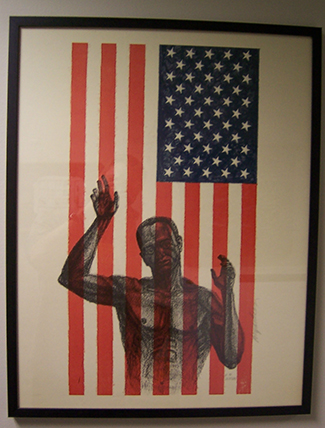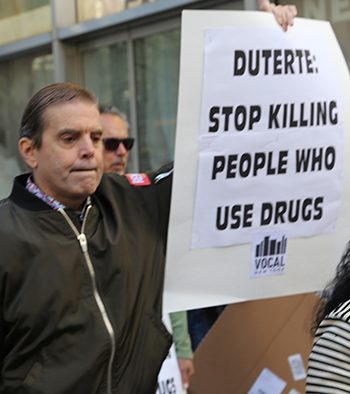There is a peculiar trick played by those who wish to rule without limit: they chip away at civil rights bit by bit, never with a grand declaration of tyranny, but always under the guise of necessity. Security, efficiency, stability—these are the talismans they brandish while turning freedoms into privileges and privileges into relics. And because such changes come incrementally, often in response to some orchestrated panic, people don’t notice until the damage is nearly complete. By then, resistance is painted as dangerous, and compliance is labeled as virtue. This is how free societies collapse into soft despotism before anyone thinks to call it by its true name.
Los Angeles, New York, and Washington D.C. may still resemble democracies, but watch closely, and you’ll see the signs of a creeping authoritarian impulse. Protesters kettled and brutalized under the pretense of public order. Journalists arrested for documenting police misconduct. Facial recognition systems scanning crowds, logging faces, cross referencing identities with secret watchlists. And always, when the public raises concerns, the same excuse: “If you have nothing to hide, you have nothing to fear.” A line so old and worn it should be framed and hung in the halls of every oppressive regime.
Let us not pretend this is hypothetical. The Patriot Act of 2001 normalized mass surveillance, allowing the government to spy on citizens without meaningful oversight. The Espionage Act, originally crafted during World War I, is now wielded against whistleblowers who expose state wrongdoing. And despite decades of civil rights movements, American policing remains a force more aligned with protecting power than serving justice. The militarization of police departments—tanks rolling through suburban streets, officers clad in combat gear, drones hovering over protests—was preparation.
Those who study history know the pattern well. Democracies do not fall all at once. They are not burned down in a single night by an invading army. Instead, they are eroded from within by those who believe their ends justify the means. It begins with the marginalization of dissent, the criminalization of protest, the quiet expansion of executive authority.
Political leaders discover that fear is a potent tool. “Emergency powers” become permanent fixtures. Courts are stacked with ideologues who reinterpret laws to suit the ruling class. Elections are weakened—not abolished outright, but manipulated with voter suppression, gerrymandering, and disinformation campaigns. When the public finally wakes up, they find their institutions hollowed out, their freedoms conditional, their government unaccountable.
One might argue that the United States, with its Constitution and legal framework, is immune to such decay. But this is a dangerous assumption. The Constitution is not self-enforcing. Laws are only as strong as the willingness of the people to uphold them. When civil rights become subject to political convenience, when power operates unchecked, when the legal system bends to accommodate abuses rather than prevent them, the foundation of democracy is already crumbling.
The solution is neither complacency nor blind faith in electoral cycles. The solution is law—unyielding, unequivocal law—that affirms, protects, and restores civil liberties before they are lost entirely. We do not have the luxury of trusting that governments, left to their own devices, will restrain themselves. If history teaches anything, it is that power unchecked becomes power abused.
Consider the right to protest. As recently as 2020, peaceful demonstrators were met with rubber bullets, tear gas, and mass arrests. Some were abducted into unmarked vans by federal agents—an eerie echo of authoritarian tactics used in less free nations. The solution is not just reform but absolute legal protection: clear prohibitions against the use of military force on civilians, the criminalization of unlawful police detainments, and a recognition that the right to assembly is as sacred as the right to vote.
Consider privacy. Modern technology has given governments tools of surveillance that past dictators could only dream of. Geolocation tracking, social media monitoring, biometric databases—these are not just theoretical threats but existing systems used against citizens, often without their knowledge or consent. If these technologies are left unchecked, a free society becomes an illusion. We must outlaw warrantless data collection, ban the use of facial recognition in public spaces, and implement severe penalties for any government official or corporation that violates these protections.
Consider due process. The right to a fair trial, to legal representation, to be free from indefinite detention—these principles are under siege. In the name of national security, we have allowed secret courts, indefinite imprisonment without charges, and legal loopholes that strip individuals of their constitutional protections. If we fail to act, these erosions will become permanent. We must dismantle these legal abuses and reaffirm that no government, under any circumstance, may deny an individual their right to justice.
And consider the psychological cost of failing to act. A society in which people fear their own government, in which speech is self-censored, in which activism is a dangerous act—this is not a free society. It is a nation of obedient subjects, not citizens. The long-term consequence is a generation raised to believe that questioning authority is futile, that oppression is normal, that freedom is a privilege granted at the discretion of the state. The slow boiling of democracy into something unrecognizable is not merely a political failure but a psychological and cultural catastrophe.
It does not take much for a society to lose its freedoms. It only takes enough people looking the other way.
Therefore, under Folklaw:
The right to free speech, assembly, privacy, and due process shall be reaffirmed and explicitly protected from executive, legislative, or judicial encroachment.
The use of military-grade equipment and tactics against civilians, including during protests, shall be banned. Law enforcement agencies must be stripped of their combat arsenals.
Facial recognition technology and mass surveillance programs without individualized warrants shall be outlawed. Any government agency found violating this shall face severe legal consequences.
The right to protest shall be protected from interference, with clear legal prohibitions against the unlawful detainment, harassment, or suppression of demonstrators.
No government official, agency, or corporate entity shall be permitted to collect or store biometric data, track personal devices, or monitor private communications without express consent and a judicially approved warrant.
Any attempt to circumvent due process, including indefinite detention, secret courts, or the targeted removal of legal protections, shall be criminalized. Any state, local, or federal law that contradicts these protections is rendered null and void.






Discussions
There are no discussions yet.